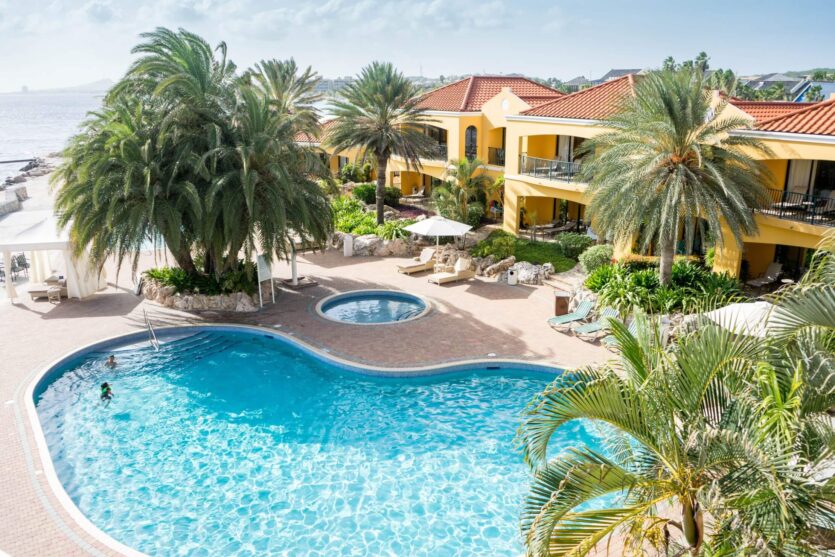A Complete Guide to Doing Business with Domestic Guests
As the travel landscape evolves, focusing on domestic guests has become increasingly important for many businesses in the hospitality and tourism sectors. Whether you’re running a hotel, a vacation rental, a tour company, or a local attraction, understanding how to cater to domestic guests can significantly boost your success. This comprehensive guide will provide you with the insights and strategies you need to effectively attract, serve, and retain domestic guests.
Understanding the Domestic Market
Before diving into strategies, it’s crucial to understand the domestic market:
- Demographics: Identify the age groups, income levels, and preferences of your domestic audience.
- Travel Trends: Stay informed about current travel trends within your country, such as popular destinations, travel seasons, and preferred types of accommodations and activities.
- Cultural Preferences: Recognize the cultural and regional differences that may influence travel behavior and preferences.
Attracting Domestic Guests
- Targeted Marketing Campaigns
- Local SEO: Optimize your website and online content for local search terms to attract domestic travelers searching for nearby destinations.
- Social Media: Utilize social media platforms popular in your country to reach a broad audience. Share engaging content that highlights your offerings and appeals to domestic travelers.
- Email Marketing: Build a strong email list and send personalized offers, updates, and travel tips to potential domestic guests.
- Promotions and Packages
- Special Deals: Offer exclusive discounts and packages for local residents or nearby regions.
- Seasonal Offers: Create promotions that align with national holidays, long weekends, and school vacations to attract domestic travelers during peak times.
- Partnerships with Local Businesses
- Collaborations: Partner with local businesses, such as restaurants, attractions, and event organizers, to create bundled offers and cross-promotions.
- Community Involvement: Engage with local communities and participate in local events to increase your visibility and build a positive reputation.
Enhancing the Guest Experience
- Personalized Service
- Customized Recommendations: Provide guests with personalized recommendations for local attractions, dining, and activities based on their interests and preferences.
- Welcome Amenities: Offer welcome packages that include local snacks, maps, and guides to enhance the guest experience.
- Cultural Sensitivity
- Language and Communication: Ensure your staff is trained to communicate effectively with guests from different regions within your country, considering language and dialect differences.
- Cultural Touchpoints: Incorporate elements of local culture and traditions into your services and decor to make domestic guests feel at home.
- Exceptional Customer Service
- Responsive Support: Provide prompt and helpful customer service, both online and in person, to address any queries or issues that guests may have.
- Feedback Mechanisms: Encourage guests to provide feedback and use their suggestions to improve your services continuously.
Retaining Domestic Guests
- Loyalty Programs
- Rewards and Benefits: Create a loyalty program that offers rewards, discounts, and exclusive benefits to repeat guests.
- Personalized Offers: Send personalized offers and promotions to loyal guests based on their previous stays and preferences.
- Regular Communication
- Newsletters: Keep in touch with past guests through regular newsletters that include updates, special offers, and travel inspiration.
- Social Media Engagement: Engage with your guests on social media by responding to comments, sharing user-generated content, and posting regular updates.
- Referral Programs
- Incentives: Encourage satisfied guests to refer friends and family by offering incentives such as discounts on future stays or other perks.
- Easy Sharing: Make it easy for guests to share their positive experiences on social media and review platforms.
Adapting to Changing Trends
- Stay Informed
- Industry Insights: Keep abreast of industry trends and changes in domestic travel behavior through industry publications, webinars, and conferences.
- Feedback Analysis: Regularly analyze guest feedback and adjust your offerings to meet changing preferences and expectations.
- Innovation and Flexibility
- New Services: Be open to introducing new services and amenities that cater to emerging trends and guest demands.
- Flexible Policies: Implement flexible booking and cancellation policies to accommodate the needs and concerns of domestic travelers, especially in times of uncertainty.
How to Write Text For Your Website That Brings Bookings?
In today’s digital age, your website is often the first point of contact between you and potential customers. Whether you’re running a hotel, vacation rental, tour company, or any service-based business, the text on your website plays a crucial role in converting visitors into bookings. Crafting compelling, clear, and persuasive content can significantly boost your conversion rates. Here’s how to write text for your website that brings in bookings.
1. Know Your Audience
Understand Your Target Market
- Demographics: Who are your typical customers? Consider their age, gender, income level, and travel preferences.
- Psychographics: What motivates your customers? Think about their interests, values, and lifestyle.
Speak Their Language
- Use terminology and tone that resonates with your target audience. Whether it’s casual and friendly or formal and professional, match your language to what your audience expects and appreciates.
2. Create Compelling Headlines
Grab Attention
- Your headlines are the first thing visitors see. Make them clear, concise, and compelling. They should instantly convey the value of your offerings.
Incorporate Keywords
- Use relevant keywords in your headlines to improve SEO and help visitors quickly understand what you offer.
3. Highlight Benefits, Not Just Features
Focus on What’s In It for Them
- Instead of just listing features, explain the benefits. How does staying at your hotel enhance their vacation? How does your tour offer a unique experience?
Use Descriptive Language
- Paint a picture with your words. Instead of saying “comfortable rooms,” describe them as “spacious rooms with luxurious bedding and breathtaking views.”
4. Use Social Proof
Include Testimonials
- Display reviews and testimonials from satisfied customers. Real experiences from real people build trust and credibility.
Showcase Awards and Certifications
- Highlight any industry awards, certifications, or recognitions you’ve received to establish authority and reliability.
5. Create a Sense of Urgency
Limited-Time Offers
- Use phrases like “limited time only,” “book now and save,” or “offer ends soon” to encourage immediate action.
Scarcity
- Indicate limited availability with phrases like “only a few rooms left” or “spots filling up fast” to prompt quicker decisions.
6. Make It Easy to Book
Clear Call-to-Actions (CTAs)
- Use strong, clear CTAs like “Book Now,” “Reserve Your Spot,” or “Check Availability” that stand out and guide visitors toward booking.
Simplified Booking Process
- Ensure your booking process is straightforward and user-friendly. The fewer steps and distractions, the better.
7. Optimize for SEO
Use Relevant Keywords
- Incorporate relevant keywords naturally throughout your content to improve search engine rankings and attract organic traffic.
Meta Descriptions and Tags
- Write compelling meta descriptions and use appropriate tags for each page to enhance visibility and click-through rates.
8. Include Essential Information
Contact Information
- Make it easy for visitors to contact you with questions. Include a phone number, email address, and a contact form.
Clear Pricing
- Be transparent about pricing and any additional fees. Providing a clear breakdown helps build trust and prevents surprises.
Policies and FAQs
- Include information on cancellation policies, check-in/check-out times, and other frequently asked questions to preemptively address potential concerns.
9. Use High-Quality Visuals
Complement Your Text
- Use high-quality images and videos to complement your text. Visuals can enhance your descriptions and give visitors a better sense of what to expect.
Alt Text for SEO
- Include descriptive alt text for images to improve SEO and ensure accessibility for all users.
10. Test and Refine
A/B Testing
- Conduct A/B testing on different headlines, CTAs, and content layouts to see what resonates best with your audience.
Analyze and Adjust
- Regularly review your website’s performance using analytics tools. Adjust your content strategy based on what’s working and what’s not
Why is it Important to Build the Brand of Your Facility?
Building the brand of your facility is crucial for numerous reasons, each contributing to the overall success and sustainability of your business. Here’s why it’s important to invest in building a strong brand for your facility:
1. Establishes Identity and Differentiation
Stand Out in the Market: In a crowded market, a strong brand helps your facility stand out from competitors. It distinguishes you from similar offerings and creates a unique identity that customers can recognize and remember.
Defines Your Facility: Building a brand defines who you are as a business, including your values, mission, and personality. It sets the tone for the experience customers can expect when they interact with your facility.
2. Builds Trust and Credibility
Instills Confidence: A well-established brand conveys professionalism and reliability. When customers recognize and trust your brand, they are more likely to choose your facility over others, knowing they will receive consistent quality and service.
Creates Emotional Connections: A strong brand can evoke positive emotions and associations. When customers have positive experiences with your facility, they are more likely to develop loyalty and become advocates for your brand.
3. Increases Customer Loyalty and Retention
Encourages Repeat Business: A strong brand fosters customer loyalty. When customers have positive associations with your facility, they are more likely to return for future visits, leading to increased revenue and long-term sustainability.
Reduces Price Sensitivity: Customers who are loyal to your brand are often less price-sensitive. They are willing to pay a premium for the assurance of quality and consistency that your brand represents.
4. Drives Revenue Growth
Generates Word-of-Mouth Referrals: A positive brand reputation encourages satisfied customers to recommend your facility to friends, family, and colleagues. Word-of-mouth referrals are one of the most powerful drivers of revenue growth.
Attracts New Customers: A strong brand attracts new customers who resonate with your values and offerings. It serves as a magnet, drawing in potential customers who align with your brand identity and messaging.
5. Supports Marketing and Promotion Efforts
Facilitates Marketing Consistency: A well-defined brand provides a consistent framework for all your marketing efforts. From website content to social media posts to advertising campaigns, a strong brand identity ensures a cohesive and unified message.
Enhances Brand Recognition: Consistent branding across all touchpoints increases brand recognition. When customers encounter your logo, colors, or messaging, they immediately associate it with your facility, reinforcing brand awareness.
6. Promotes Growth and Expansion
Facilitates Expansion Opportunities: A strong brand provides a solid foundation for growth and expansion. As your facility grows, your brand becomes increasingly recognized and trusted, making it easier to expand into new markets or offer additional services.
Attracts Investment and Partnerships: A reputable brand can attract potential investors, partners, and franchisees who see the value in aligning with your facility. A strong brand can open doors to new opportunities for collaboration and growth.
7. Enhances Employee Engagement and Pride
Fosters a Positive Work Environment: Employees who are proud of the brand they represent are more likely to be engaged and motivated. A strong brand identity instills a sense of purpose and belonging among staff, leading to higher morale and productivity.
Aligns Employees with Brand Values: Clearly defined brand values and mission help employees understand the company’s goals and their role in achieving them. When employees feel connected to the brand, they are more likely to deliver exceptional service and represent the facility positively.



